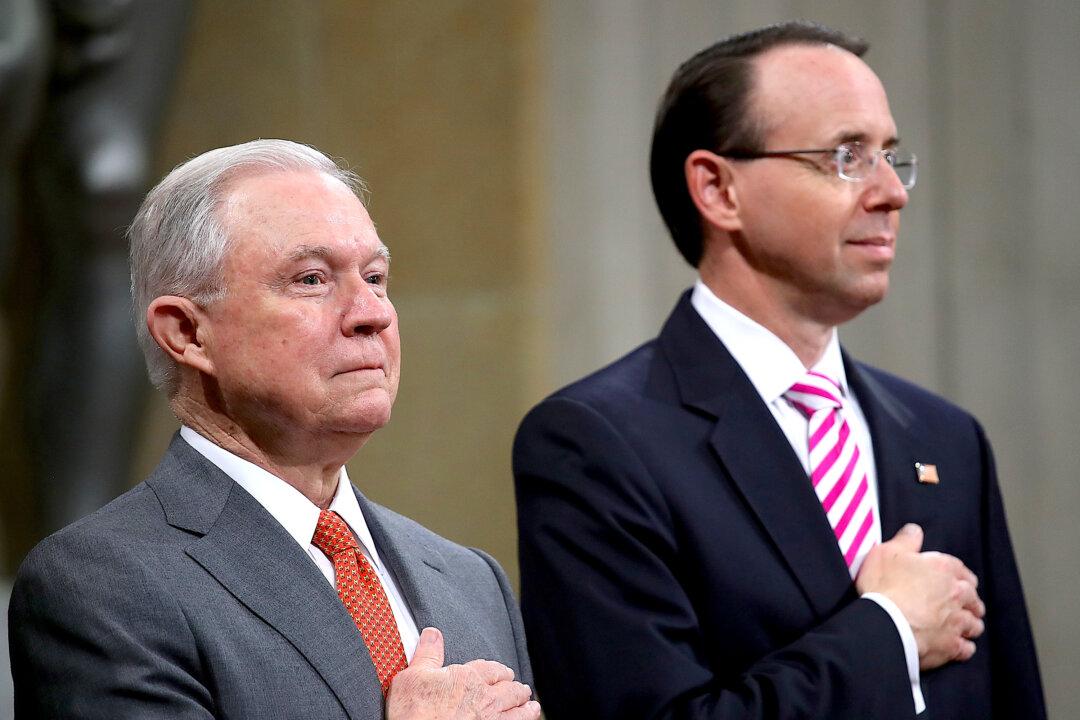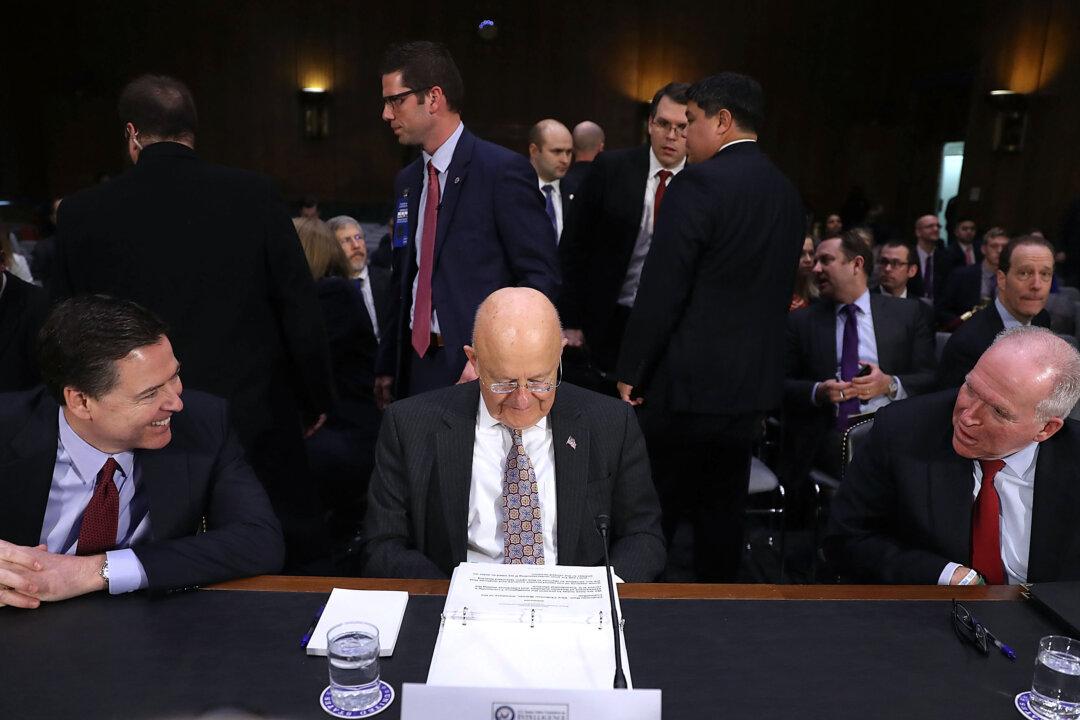Commentary
The Department of Justice on May 9 held a going-away ceremony for Rod Rosenstein, who is leaving after having served probably the most crucial role in the Trump administration for the past two years.
As Rosenstein makes his long-anticipated departure as deputy attorney general, the final pieces are moving into position on the battlefield that President Donald Trump has been carefully preparing for more than two years.
As I wrote in my column, “Trump Continues to Prepare the Battlefield,” on Jan. 18, it was absolutely of paramount importance that Rosenstein leave the Justice Department (DOJ) before the prosecution phase of Spygate could begin. This is what I wrote:
“William Barr is coming in now to take over the next phase, while [Jeff] Sessions is free to appear as a witness and testify about what McCabe and the other plotters told him at the time they were trying to entrap him.
Do you know who would also have to leave his current job at the DOJ to be a participant in these prosecutions? Because like Sessions, he’s involved a lot of this as a witness? Rod Rosenstein.”
While you are in the role of being called as a witness in certain criminal cases, you can’t also be in a position of authority over those selfsame cases. That’s why both Sessions and Rosenstein had to leave the DOJ before the prosecution phase could be launched.
People such as former FBI Director James Comey and former Deputy Attorney General Sally Yates, whose key roles in the Spygate “insurance policy” are well known, are now making the rounds in the U.S. news media trying to get out ahead of DOJ Inspector General Michael Horowitz’s soon-to-be-released FISA abuse report, by giving interviews in which they insist they did nothing wrong and were only acting in the best interests of the country and certainly not on the basis of political partisanship or anything like that.
Their media allies are assisting these former top government officials by helping to launch the preemptive narrative that they are, in fact, heroic whistleblowers. Just one such example of setting the narrative is this recent CNN interview with Betsy Reed, head editor of The Intercept, in which she claims it’s “preposterous” to call a whistleblower a traitor.
I expected that this particular talking point of trying to claim the Spygate leakers were heroic whistleblowers would soon emerge, which is why I wrote the column “The Spygate Leakers Aren’t Whistleblowers; They’re Criminals” on April 29 to demonstrate the absurdity of it.





